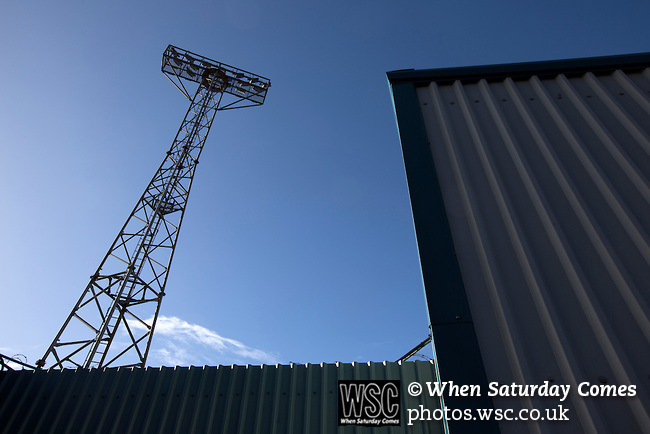
Search: ' Charles Miller'
Stories
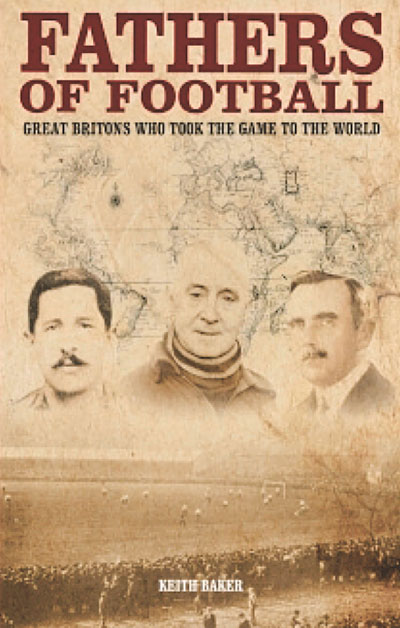 Great Britons who took the game to the world
Great Britons who took the game to the world
by Keith Baker
Pitch Publishing, £12.99
Reviewed by Paul Brown
From WSC 341 July 2015
Britain did not invent football, as Sepp Blatter would no doubt remind us, but it did knock it into shape, drawing up rules, forming clubs, organising competitions and sending the association version out into the world. British migrants, travelling with Laws of the Game pamphlets and deflated leather casers in their suitcases, became football missionaries, teaching and inspiring new converts, and sowing the seeds for what would become an international obsession.
In Fathers Of Football, Keith Baker profiles several of these pioneers of the world game, many of whom remain relatively unknown in their home country. Take James Spensley, who left Britain in 1896 to work for an insurance company in Genoa. Today, Spensley has an Italian park, street and junior football tournament named in his honour. His great contribution to football in Italy began when he persuaded the expat Genoa Cricket and Athletic Club to take up the association game (and to admit non-British members).
Spensley became the club’s goalkeeper, captain and de facto manager, leading Genoa to six Italian championships between 1898 and 1904. Their success saw the club renamed the Genoa Cricket and Football Club – a name they retain today. The influence of British pioneers can be seen in the Anglicised names of several international football clubs: Genoa rather than Genova; Milan rather than Milano; Athletic rather than Atlético.
Some of the individuals profiled here may already be familiar to football readers. Charles Miller is popularly regarded as the father of football in Brazil, and was the subject of various colour pieces during last summer’s World Cup. Alexander Hutton is similarly regarded in Argentina. Meanwhile Jimmy Hogan’s incredibly influential contribution to the development of football in Austria and Hungary (via the Netherlands, Switzerland, France and Germany) is well documented, although it remains a remarkable story.
More obscure are the Charnock brothers, Clement and Harry, who do not have so much as a Wikipedia entry between them, despite the role they played in the development of football in Russia. The brothers, from Lancashire, travelled to Moscow around 1890 to manage textile factories. Both men encouraged their employees to take up football and inspired the formation of several clubs, despite state opposition to organised activities involving workers. Harry’s OKS (Orekhovo Sports Club) were a founding member of the Moscow League, and won five consecutive championships between 1910 and 1914, playing in front of crowds of around 15,000. However, after the Revolution in 1917, OKS were placed under the control of the Cheka – a forerunner of the KGB. The club were renamed Dynamo Moscow, and the Charnocks were expunged from their history. They deserve to be better remembered.
Baker makes it clear that his “Great Britons” were not solely responsible for the spread of association football around the world, and he places the growth of the game into wider historical and social context. But his concise and informative book pays tribute to their individual achievements, and provides an illuminating record of their contributions to the world game.
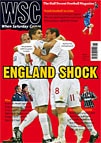 The hosts are coming to terms with new realities of the bottom division, financial hardship and predatory bigger clubs, while the visitors are happy to be playing their second season in the League. Charles Morris reports
The hosts are coming to terms with new realities of the bottom division, financial hardship and predatory bigger clubs, while the visitors are happy to be playing their second season in the League. Charles Morris reports
I first went to Crewe Alexandra’s ground in early, wide-eyed childhood. Ever since it has been a place capable of conjuring up some much-needed magic amid the industrial surroundings of Coronation Street-style houses to the west and the town’s railway station and sidings to the east.
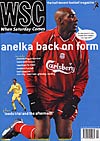 Dear WSC
Dear WSC
I attended the York v Colchester FA Cup second round replay. Ah, the magic of the FA Cup: went for a traditional pre-match pie and when the kiosk opened I was third in the queue. The first man ordered two meat pies. The second man ordered one meat pie. The response came back: “Sorry love, we’ve sold out.” I laughed so hard I lost my place in the queue. You don’t get that kind of comedy at Old Trafford.
Alex Gage, via email
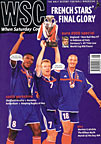 Less than 20 years ago, Barnsley and Rotherham were eyeball to eyeball. Richard Darn examines how it ll went right for the Tykes and wrong for the Millers
Less than 20 years ago, Barnsley and Rotherham were eyeball to eyeball. Richard Darn examines how it ll went right for the Tykes and wrong for the Millers
I’ve always had difficulty understanding Charles Darwin and all that Origin of the Species stuff. How on earth could a hare and a tortoise be descended from the same creature? Then one day it suddenly dawned on me. Once upon a time Barnsley FC were just like Rotherham United – and now they’re not.